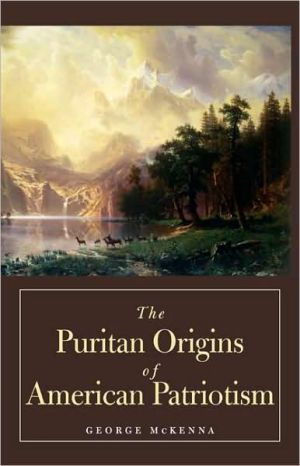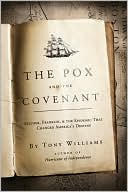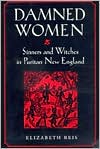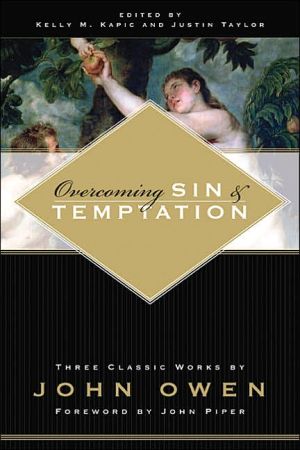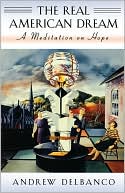The Puritan Origins of American Patriotism
In this absorbing book, George McKenna ranges across the entire panorama of American history to track the development of American patriotism. That patriotism—shaped by Reformation Protestantism and imbued with the American Puritan belief in a providential “errand”—has evolved over 350 years and influenced American political culture in both positive and negative ways, McKenna shows. The germ of the patriotism, an activist theology that stressed collective rather than individual salvation,...
Search in google:
In this absorbing book, George McKenna ranges across the entire panorama of American history to track the development of American patriotism. That patriotism—shaped by Reformation Protestantism and imbued with the American Puritan belief in a providential “errand”—has evolved over 350 years and influenced American political culture in both positive and negative ways, McKenna shows. The germ of the patriotism, an activist theology that stressed collective rather than individual salvation, began in the late 1630s in New England and traveled across the continent, eventually becoming a national phenomenon. Today, American patriotism still reflects its origins in the seventeenth century. By encouraging cohesion in a nation of diverse peoples and inspiring social reform, American patriotism has sometimes been a force for good. But the book also uncovers a darker side of the nation’s patriotism—a prejudice against the South in the nineteenth century, for example, and a tendency toward nativism and anti-Catholicism. Ironically, a great reversal has occurred, and today the most fervent believers in the Puritan narrative are the former “outsiders”—Catholics and Southerners. McKenna offers an interesting new perspective on patriotism’s role throughout American history, and he concludes with trenchant thoughts on its role in the post-9/11 era.
The Puritan Origins of American Patriotism \ \ By GEORGE MCKENNA \ YALE UNIVERSITY PRESS \ Copyright © 2007 Yale University\ All right reserved.\ ISBN: 978-0-300-10099-0 \ \ \ \ \ Chapter One \ The Puritan Narrative \ Then judge all of you ... whether these poor New England People, be not the forerunners of Christ's Army, and the marvelous providences which you shall now hear, and be not the very Finger of God, and whether the Lord hath not sent this people to Preach in this wilderness, and to proclaim to all Nations, the near approach of the most wonderful works than ever the Sons of men saw. -Edward Johnson, Wonder-Working Providence of Sion's Savior in New-England (1654)\ THE STORY IS FAMILIAR to students of seventeenth-century Puritanism in New England, but it never loses its poignancy: a frail, middle-aged woman faces an official inquisition by a pack of angry men, including the governor and deputy governor. The governor serves at once as judge and prosecutor. Witnesses, several clergymen gathered from throughout the commonwealth, are prepared to testify against her. But when she is brought before them she is unbowed and unintimidated. At the very outset she knocks them o balance by demanding to know the charges against her and insisting that all the witnesses against her be put under oath, just as she was. She has a knack for turning the tables on her inquisitors by answering their questions with questions and confronting them with their own doctrines to prove that they, not she, are the heretics.\ Most historians have concluded that by sheer nerve, brains, and conviction Mistress Anne Hutchinson was for a time beating her inquisitors in argument, or at least frustrating their efforts to trip her up. But then she made a fatal slip. During the second day of intense, hostile questioning, a weary Hutchinson suddenly launched into an account of how one day she had learned to distinguish true from false ministers of the gospel. How did she learn that? she was asked. Characteristically, she answered with a question:\ Mrs. H. How did Abraham know that it was God that bid him offer his son, being a breach of the Sixth commandment?\ Dep. Gov. By an immediate voice.\ Mrs. H. So to me by an immediate revelation.\ Dep. Gov. How! An immediate revelation.\ Mrs. H. By the voice of his own spirit to my soul.\ To almost all who were present this confirmed the charge of "antinomianism," entertaining a doctrine that was "against the law," more accurately, "against the word." Hutchinson seemed to be saying that her insights came not from the word of scripture but directly from God. All good Protestants believed that the age of immediate revelation ended with the passing of the apostles in the first century. In the view of all orthodox Puritans, only dangerous fanatics like the "Anabaptists," or "familialists," who took over the German city of Munster in 1534 claimed to enjoy direct communication with God.\ From the standpoint of her accusers, Hutchinson's talk of immediate revelation was itself providential, for it enabled them to clinch their case against her. She was found guilty of sedition, subjected to what amounted to house arrest for several months, then excommunicated from her Boston church and banished from the commonwealth. Her life ended in 1643 in Pelham, New York, where she and most of her family were massacred by the Indians.\ The governor, who in this trial doubled as prosecutor and judge, was John Winthrop. Winthrop was elected to the post a year before departing from England. Defeated by Henry Vane in 1636, he was reelected in 1637; from then until his death he was either governor or deputy governor, and he was always the commonwealth's leading citizen. It was under Winthrop's stewardship that the suffrage was first broadened from a dozen or so charter members of the Massachusetts Bay Company to virtually all male church members, and on many occasions he demonstrated a degree of flexibility and leniency that scandalized some of his more rigid colleagues in government. Later in life he summed up one of the signature tenets of his rulership by observing that "in the infancy of plantation, justice should be administered with more leniency than in a settled state, because people were then more apt to transgress, partly of ignorance of new laws and orders, partly through oppression of business and other straits." Francis Bremer, a sympathetic biographer, comments on his character: "While zealous, he was not a zealot. Committed to do God's will, he was not as confident as were some other leaders that the will of God was easily discerned. Some beliefs-particularly familism-he had no tolerance for, but his instincts were tolerant. For Winthrop, the apprehension of the spirit of God in an individual counted for more than doctrinal purity." Edmund Morgan's portrait of Winthrop, though hardly less sympathetic ("Patient, conscientious, firm but not arbitrary, he was the very soul of discretion") reveals some darker shades in his character: He was prone to take a position, perhaps intuitively, and then support it in lawyerlike fashion by every conceivable argument, even by arguments inconsistent with one another. He could see too easily the hand of God operating in his favor whenever his opponents met with some misfortune, and he took a morbid satisfaction in such events.\ Winthrop is best known today not for the trial of Anne Hutchinson but for the speech he delivered seven years earlier aboard the Arbella, the flagship of the first Puritan immigration. It was in that speech, A Model of Christian Charity, that he used the phrase "City upon a Hill," borrowed from St. Matthew's Gospel, to describe the new commonwealth in America. Called "a kind of Ur-text of American literature," the phrase has been quoted (and misquoted) by Americans to bolster a variety of political viewpoints. Actually, the phrase was something of a commonplace at the time, having long been used in England to describe Puritan strongholds such as the city of Colchester. The context in which the phrase is used in this speech is the need for the emigrants, whether of high or low station in life, to "be all knit more nearly together in Bond of brotherly affection." The speech has an "if ... then" structure: The Lord has made a covenant with us, and if he "shall please to hear us, and bring us in peace to the place we desire, then hath he ratified this Covenant and sealed our Commission." Our part of the bargain is to follow the counsel of Micah, "to do Justly, to love mercy, to walk humbly with God." If we can learn to "delight in each other, make others' Conditions our own, rejoice together, mourn together, labor and suffer together, always having before our eyes our Commission," then "the Lord will be our God and delight to dwell among us, as his own people and will command a blessing upon us." But "if we shall deal falsely with our God in this work we have undertaken and so cause him to withdraw his present help from us, we shall be made a story and a by-word through the world, we shall open the mouths of enemies to speak evil of the ways of God." It was in this context that Winthrop spoke of the new colony as "a City upon a Hill." He meant it not as a boastful claim that New England was going to be a beacon to the world but rather as a warning that, as he put it, "the eyes of all people are upon us." If America breaks its covenant, "we shall shame the faces of many of God's worthy servants and cause their prayers to be turned into curses upon us till we be consumed out of this good land whither we are going."\ Winthrop was neither a prophet dreaming of America's glorious future nor a protonationalist envisaging some sort of collective mission for the people of the New World. He was an honest, dedicated politician who was very concerned about "the variety and difference" among God's creatures, particularly among those who had come with him to New England. Among his company were people from various places in England, with different occupations and incomes and even diverse ways of thinking about their relationship with the Almighty. Unless they learned to relate to each other "in brotherly affection," the whole enterprise could be torn apart in factional strife. Yet Winthrop was prudent enough to know that unity cannot be dictated from above; human diversity is part of God's plan "for the preservation and good of the whole," so if unity is to be achieved it must be based on a careful balancing of interests and, within limits, tolerance for differing points of view.\ But Anne Hutchinson had pushed beyond what he considered reasonable limits. It was not Hutchinson's final, blurted-out revelation of her direct line to God that caused her to be summoned to the court in the first place. The real reason was that she had "troubled the peace of the commonwealth and the churches here" by holding unauthorized meetings in her home during which she said "divers things ... very prejudicial to the honour of the churches and ministers thereof." What "divers things"? The main one, according to the testimony of almost all the ministers who appeared at the trial, was her accusation that the religious leaders of the colony-with the exception of John Cotton and her brother-in-law John Wheelwright-were not "sealed in the spirit." They had not truly been touched by God, and so they were not able ministers of the gospel. They were preaching a doctrine of works rather than of grace. This was a grave indictment. The heart of Protestantism was that believers are saved not by meritorious works-by good deeds, by acts of charity or piety-but by faith, and faith is a free gift of God. God gives it or withholds it, at his pleasure, and the role of the faithful is more or less passive. But the "more or less" is crucial.\ SPIRITISTS AND PREPARATIONISTS\ Over seventy years ago Perry Miller began the work that would in time make him America's foremost scholar of Puritanism by writing a book entitled Orthodoxy in Massachusetts. More recent scholars, such as Janice Knight and Andrew Delbanco, have discovered that during the early years of the Puritan settlement in New England there was not one but two Puritan orthodoxies. The first emphasized God's love and "free grace." Knight calls its adherents "spiritual brethren" or "spiritists." The other orthodoxy put its emphasis on "preparation" for receiving God's grace. God's grace was freely given, but humans could prepare for its reception by making their souls pliant and humble.\ Both spiritists and preparationists held fast to the Reformed Protestant doctrine that human nature is depraved, human "works" are futile, and people are saved only by God's free grace, but the preparationists tried to moderate it by leaving some room for human agency in salvation. One of Miller's most enduring contributions to Puritan studies was his explication of "federalist theology," embraced by preparationists such as Thomas Shepard and Peter Bulkeley. Without denying free grace, they worked around it with a theory of covenants. In this formulation, God's original compact with man, the "covenant of works," was nullified by Adam's disobedience, but God gave humanity a second chance with the "covenant of grace." Under this covenant, God says, in effect, "I know that you humans can't keep yourselves from sinning, but I will bind myself to save you anyway, if only you will believe in me." God, who is sovereign and omnipotent, has nevertheless bound himself by this covenant. Miller explains it as follows: "He has, voluntarily, of his own sovereign will and choice, consented to be bound and delimited by a specific program. He has promised to abide by certain procedures comprehensible to the human intellect. He has not, it is true, sacrificed His sovereignty by so doing; he has not been compelled by any force of reason or necessity. He has merely consented willingly to conform in certain respects to stated methods. For all ordinary purposes He has transformed Himself in the covenant into a God vastly different from the inscrutable Divinity of pure Calvinism." In ordinary usage, the covenant implies some element of conditionality: If you do this, I will do that. God has freely decided to make himself party to such a covenant, saying, in effect, if you will believe in me, I will forgive your sins. In Miller's telling phrase, God has voluntarily "chained" himself and become "a God who can be counted upon, a God who can be lived with."\ Miller's analysis, so far as it goes, remains one of the most lucid explanations of Puritan covenant theology. His mistake, as I have said, was his assumption that this was the only "orthodoxy in Massachusetts." The other orthodoxy, spiritism, which Knight traces back to the English theologians Richard Sibbes and John Preston, used the language of covenants but refused to attach any conditionality to them. God freely saves-or condemns-and nothing humans can do will in any way affect his judgment. As Wheelwright put it, "We are altogether passive."\ The spiritists were the flower children of Puritanism. Their emphasis on God's freely given love and on the ecstasy the sinner feels when touched by that love gave their sermons a mystical spontaneity that was often lacking in preparationist preaching. Anyone who still sees Puritans in the stereotypical image of grim-visaged preachers of a rigid, joyless religion would be surprised by Sibbes. Though he stayed behind in England, where he died in 1635, his works enjoyed an enthusiastic reception in New England. (Knight often refers to the spiritists as Sibbeseans.) Sibbes was respected more as a pastoral counselor than as a professional theologian; his words were designed to bring comfort and reassurance to troubled souls. A couple of Sibbesean quotes-many more could be cited -will give some indication of how "unpuritanical" this Puritan was:\ The Law came with curses [but] Christ came in another manner, the Gospel was delivered in a mild sweet manner, Christ as an Ambassador came sweetly to entreat and beseech, there is a crying indeed, but it is a crying out of love and entreaty, not a shouting in a terrible manner. We should not be too much cast down with the thought of our own folly, guilt, unholiness, and misery. There is that in Christ which answereth to all our wants and an all-sufficiency, for all degrees of happiness.... We are not bidden to mourn always, but to rejoice always.\ "Love," "sweetness," "delight," "joy": these words recur in the Sibbesean sermons. The senses and the heart play a direct role in his theology, and at times he seems to be saying that the Christian need not wait for the end of time to get a taste of God's sweetness: "He lets fall some Manna in this our wilderness, he lets us relish that now; it will not putrefy as that other Manna did, but endure, and make us endure forever."\ The preparationists, in contrast to the Sibbeseans, struck a more austere note. Love, sweetness, mercy-yes, they were always there in Christ, but sinners first had to be converted. In The Soul's Preparation for Christ, Thomas Hooker, one of the most influential of the New England preparationists, saw grounds for hope but warned that time was running out: "If you have the hearts of men, look for mercy; though your estate be fearful for the present, yet it may be good: God hath not set the seal of condemnation upon your sins, he hath not yet sent you to hell." The soul's salvation will require more than just a little mercy from God, "not a few spoonfulls or buckets-full," but a whole "well of mercy to purge such a miserable wretch as thou art." The images of arduous and painful work recur throughout Hooker's famous sermon. The sinner is like "a man that hath a bone out of joint and it is now festered"; "it will make him cry many an oh, before it be brought into his right place again." Then, to emphasize the fact that the conversion process is not simply the passive one of enduring pain, he changes the metaphor from having a bone set to doing something: washing one's filthy clothes: "It is not a dipping of a foul cloth in water will clean it, but it must be soaked and rinsed in it: so you must not think to have your soul stains of sin washed away with a few tears; No, no, you must rub your hearts over and over, and awake your consciences again and again; it is not a little examination, nor a little sorrow will serve the turn; the Lord will pull down those proud hearts of yours and (it may be) let you go a begging for mercy all your days, and well if you may have it at your last gasp when all is done."\ (Continues...)\ \ \ \ \ Excerpted from The Puritan Origins of American Patriotism by GEORGE MCKENNA Copyright © 2007 by Yale University. Excerpted by permission.\ All rights reserved. No part of this excerpt may be reproduced or reprinted without permission in writing from the publisher.\ Excerpts are provided by Dial-A-Book Inc. solely for the personal use of visitors to this web site. \ \
Preface xiIntroduction 11 The Puritan Narrative 162 Revolutionary Puritanism 443 Romantic Puritanism 794 The Holy War 1285 Puritans in the Gilded Age 1646 Puritanism Debunked and Revived 2077 America Blessed and Judged: The Fifties and Sixties 2598 Intermezzo 3109 America After 9/11 350Notes 375Index 415
